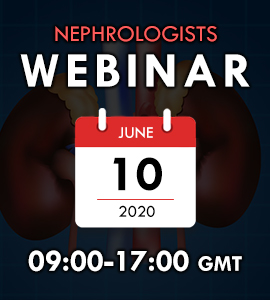Tej Singh
Fist Assist Devices, USA
Title: Novel, intermittent pneumatic, wearable compression device for vein enhancement and vein dilation helps with renal failure care and phlebotomy procedures
Biography
Biography: Tej Singh
Abstract
Introduction: Delays in AV fistula (AVF) maturation cause increased costs. Poor arm veins delay phlebotomy procedures. Early use of non-invasive devices may help assist clinical AVF maturation and vein dilation.
Method: One week after AVF creation, a novel compression device [Fist Assist (FA)] was applied 15 cm proximal to the AVF in order to apply intermittent, cyclic compression for 60 mm Hg for six hours daily for 30 days. Forty (n=46) AVF patients were enrolled in an IRB approved study to test vein maturation at baseline and with the FA. Controls (n=17) used a sham device. Vein size was measured and recorded at baseline and after 30 days by duplex measurement. Clinical results (percentage increase) were recorded and tested for significance using standard t-tests.
Results: No patients experienced immediate thrombosis or adverse effects. After one month, the mean percentage increase in vein diameter in the FA treatment group for all fistulas was significantly larger (p=0.05) than controls in the first 5 mm segment of the AVF vein . Forearm AVF veins dilated in all segments of the veins compared to upper arm veins. No fistulas had complications on dialysis or after needle placement.
Discussion: Vein enlargement and dilation occurred with intermittent pneumatic compression in a home environment. Patients tolerated the device and it worked with no reported complications leading to commercialization.
Conclusion: Early application of an intermittent pneumatic compression device may assist in AVF maturation and success. FA may assist in forearm vein dilation and may provide the first wearable for the renal community to assist in AVF dilation and superficial arm vein enhancement.

